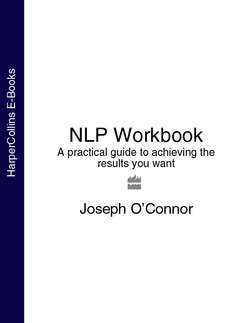Читать книгу NLP Workbook: A practical guide to achieving the results you want - Joseph O’Connor - Страница 36
External Attention
ОглавлениеThere is so much that we could be aware of. Our conscious attention is limited to about seven things, but there is much more that we notice unconsciously. NLP grew by modelling – noticing differences that other people had not noticed before, differences that turned out to be significant. NLP pays attention to eye movements, for example. When you study NLP you become aware of eye movements in a way that you never did before, yet they were always there. What else could be out there in your environment that is significant, but as yet unnoticed?
Some things are missed because people favour one sense. You may notice a lot visually, but not listen so much. After talking to someone, you may remember what they looked like very well, but may not be so clear about what they said or their voice tone. You may listen well, but not be so visually acute. After a conversation you may remember what was said and the nuances of voice tone, but not remember so well what the person looked like or what they were wearing. You may pay attention mostly to feeling. You may remember feelings and emotions and intuitions from a conversation, maybe a sense of empathy, but will not be so clear about the details of what was said or what the other person looked like.
The way to develop yourself is to play to your weaknesses. Set aside certain times when you will deliberately pay attention with your weaker senses. It will be uncomfortable, but you will learn more.
If you always do what you’ve always done, you’ll always get what you always got. And there is always more.
